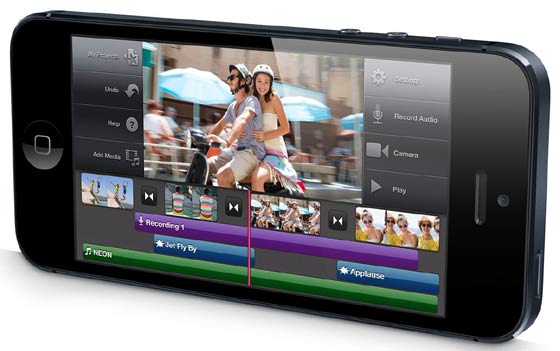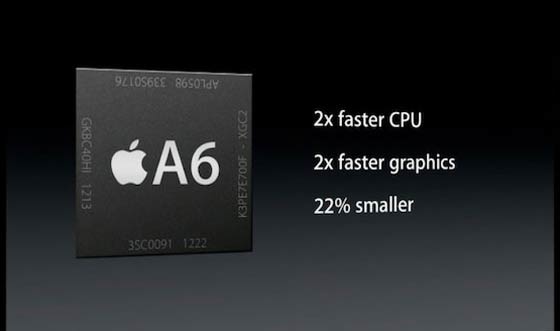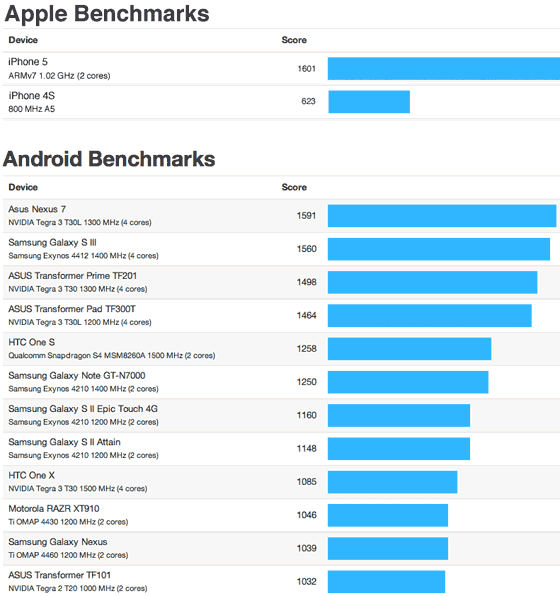The tech specs page of the Apple iPhone 5 doesn’t give you much technical info about what is inside the newly announced smartphone. Actually the processor isn’t listed at all within those specs! All we have is Apple’s general statement that the “iPhone 5 is noticeably faster - up to twice as fast compared with the A5 chip,” in the iPhone 4S. Luckily for us the folks at Anandtech have analysed the Samsung part number, which was clear to see on the picture of the chip used at the iPhone 5 launch event, to give us some more meaningful details.

The Apple A6 (AKA Samsung K3PE7E700F-XGC2) is a SoC which is packaged-stacked with its total 1GB RAM in dual-channel configuration. The clock speed is 1066MHz. Anandtech’s max memory bandwidth chart shows that the iPhone 5 has about 33 per cent more memory bandwidth (8,528MB/sec ) than the iPhone 4S.
The Apple A6 SoC still uses the ARM A9 design, according to Ubergizmo, however it has reaped performance improvements by custom re-building and optimising of the core. This is similar to how Qualcomm have optimised the Snapdragon range of processors and “made it possible to execute more instructions per cycle and this has been a proven method to boost performance without increasing frequency and power consumption”.

Apple claims for the new A6 chip; “Faster CPU performance. Faster graphics. Even better battery life.” On the Apple site it shows the iPhone 5 running a video editing program to illustrate the usefulness of this extra horsepower. However, at HEXUS we like benchmarks to evaluate our processors so it was fortunate that some of the first benchmarks for the iPhone 5 turned up yesterday on MacRumours.com.

The Geekbench 2 score of 1601 soundly beats the iPhone 4S (629) and even the iPad 3 (766). The MacRumours source admits there is a chance the results are faked but “seems to believe that these results are legitimate”. If the results are true the iPhone 5 Geekbench performance beats not just any prior iOS device but ALL Android devices including the ASUS Nexus 7, Samsung Galaxy S3 (4 cores), HTC One X etc. This is very interesting but if the benchmark scores have a chance of being faked then they have to be taken with a pinch of salt. There is currently no Geekbench available for Windows phones so there is no possibility that the Nokia Lumia 920 score will be leaked to help our QOTW: iPhone 5 vs. Lumia 920, what's it to be? debaters...













